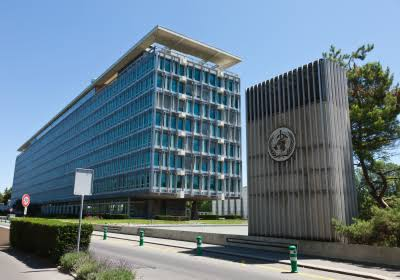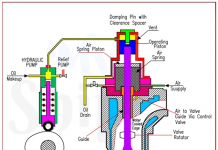
International Labour Organization
Member profile
The International Labour Organization (ILO), situated in Geneva, became the first specialized agency of the UN. It was established in the year 1919, in response to a destructive war, to pursue a vision depends on the premise that universal, lasting peace can be established only if it is depends upon fair treatment of the workers. ILO is dedicated to advancing opportunities for women & men to achieve productive work in conditions of freedom, equity, security & human dignity. Its chief motives are to promote rights at work, promote satisfactory employment possibility, improve social protection & strengthen dialogue in handling work related issues.
Main activities
The ILO(International Labour Organization) is the global body responsible for drawing up & overseeing international labor standards and for ensuring that these standards are respected in practice and principle. The member States of the ILO meet at the International Labour Conference in June of each & every year. Employer & worker representatives can freely express themselves & vote according to the instructions issued from their organizations. Representatives sometimes vote against each other. The Conference establishes & adopts international labor standards and is a forum for discussion of key social and labor questions. It also accepts the Organization’s budget & choose the Governing Body.
Links to the health workforce crisis
The ILO encourages the development of independent employers & worker organizations & provides applicable training & advisory services. Its technical aid covers fields such as:
- Vocational training and vocational rehabilitation;
- Employment policy and social security;
- Labor administration and statistics;
- Labor law and industrial relations;
- Working conditions and cooperatives; and
- Management development.
The ILO & WHO agree that, with a view to enable the effective achievement of the objectives set forth in their respective Constitutions within the general framework confirmed by the Charter of the United Nations, they will act in close co-operation with each other & will ask each other regularly in view to matters of common interest.
This Agreement came into force on its approval by the Governing Body of the International Labour Office and the World Health Assembly.
Date of enforcement: 10 July 1948 Published in: UN Treaty Series, Vol. 19.
Tripartism and social dialogue
The ILO‘s work is the consequence of the collaboration between governments & employers & workers organizations in promoting social & economic progress.
The ILO focuses to assure that it serves the needs of working women & men by leading together governments, employers & workers to form labour standards, prepare policies & formulate programmes. This structure of the ILO, where workers & employers together have an equal voice with the authorities in its deliberations, shows social dialogue in action. It assures that the views of the social partners are closely reflected in the ILO labour standards, policies & programmes.
The ILO(International Labour Organization) motivates this tripartism within its constituents – employers , workers & member States , by encouraging a social dialogue between the trade unions & employers in forming, & where suitable, executing national policy on social, economic, & many other issues.
Main bodies
The ILO manages its work through 3 main bodies which covers governments, employers & workers representatives:
- the International labour Conference form the International labour standards & the broad policies of the ILO. It meets annually in Geneva. Often called an international parliament of labour, the Conference is also a forum for discussion of key social & labour questions.
- the Governing body is the executive council of the ILO. It meets 3 times a year in Geneva. It takes decisions on ILO policy & set up the programme & the budget, which it then submitted to the Conference for acceptance.
- the International Labour Office is the permanent secretariat of the International Labour Organization. It is the mid point for ILO overall activities, which it forms under the inspection of the Governing Body & under the leadership of the Director General .
The function of the Governing Body & of the Office is assisted by the tripartite committees including major industries. It is also assisted by the committees of experts on such matters as vocational training, management development, occupational safety & health, industrial relations, workers education, & special problems of women & young workers.
Regional meetings of the ILO(International Labour Organization) member States are held periodically to evaluate the matters of special interest to the regions concerned.
Standards supervisory system
International labour standards are assisted by the supervisory system that is unique at the international level & that aids to assure that countries execute the conventions they accept. The ILO regularly evaluates the application of standards in member states & points out areas where they could be better used. If there are any problems in the execution of the standards, the ILO seeks to helps countries through social dialogue & technical aids. The ILO has formed various means of supervising the application of Conventions & suggesting in law & practice following their acceptance by the International Labour Conference & their approval by the States. There are two kinds of supervisory mechanism.
Partnering for development
Since in the early 1950s, the ILO has been giving technical help to countries on all continents & at all stages of economic development. Projects are executed through close cooperation between receiving countries, donors, & the ILO, which keep a network of country offices worldwide.
Development cooperation builds link between the ILO‘s standard setting role & women & men everywhere. It is important to give people good work chances & an important means of helping our constituents – workers, employers & governments – in making the Decent Work Agenda a truth. Simply put, development cooperation helps the technical, organizational & institutional capacities of ILO constituents for them to put in place meaningful & logical social policy & assure sustainable development. With over 50 years of experience in development cooperation on all continents & at all stages of development, the ILO today has over 600 programmes & projects in more than 100 countries – with the support of 120 development partners.
Programme and budget
The Programme & Budget of the Organization which sets out the strategic objectives & predicted outcomes for the Organization‘s work is ratified every 2 years by the International Labour Conference.




